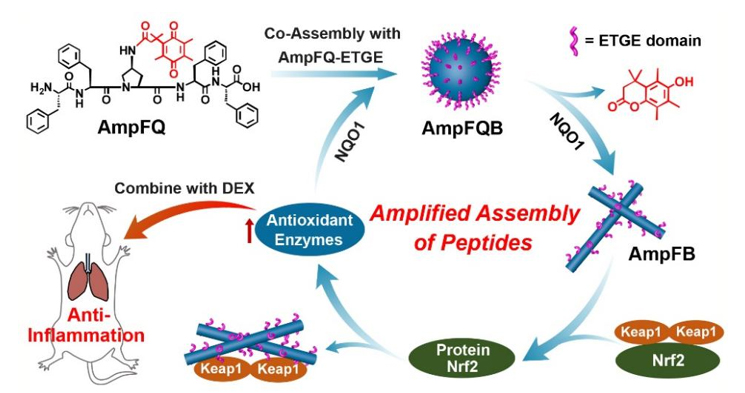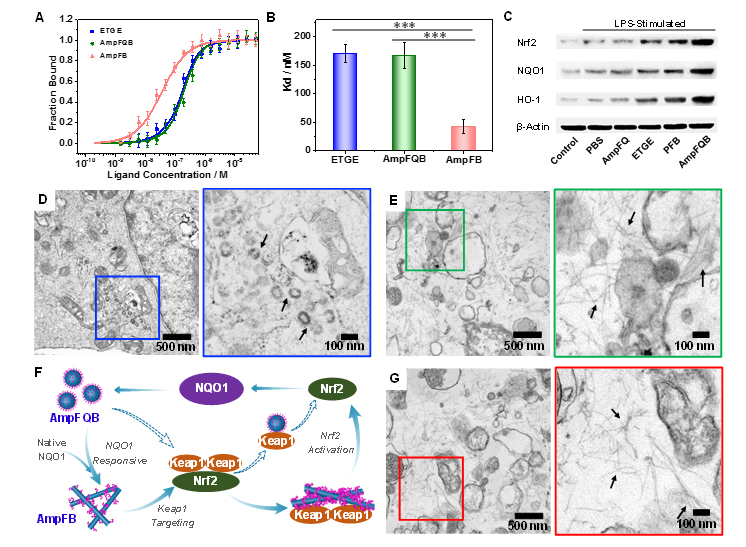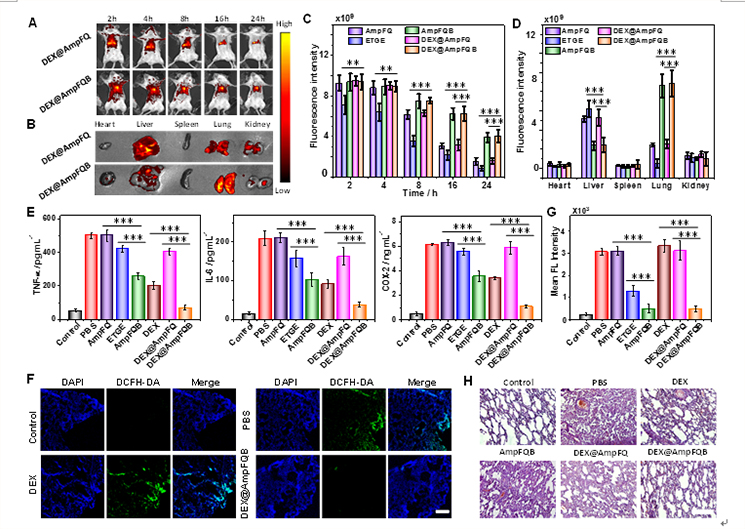Nankai's team constructed therapeutic agents at lesions in situ with "enzyme amplified peptide assembly"
Recently, Yu Zhilin’s research group from Nankai University published a paper in Journal of the American Chemical Society and proposed a new concept of "enzyme amplified peptide assembly", which realized the intracellular in situ assembly process at normal enzyme levels through the amplification relationship between polypeptide assembly and enzyme expression, thus providing a new strategy for the early diagnosis and intervention of diseases.
Based on previous studies of polypeptide controllable assembly strategies and biomedical functional materials, Yu Zhilin’s team has constructed a "polypeptide self amplification assembly system" through designing and synthesizing quinone propionic acid modified polypeptide AmpFQ and its derivative AmpFQ-ETGE (in which ETGE sequence originates from Nrf2 structural domain), taking NADH-quinone dehydrogenase 1 (NQO1) in inflammatory macrophage as an example.

Fig. 1 Sketch map of polypeptide self amplification assembly related to NQO1 expression in macrophage.
Picture source: J. Am. Chem. Soc.
"Experiments show that responsive polypeptide precursor molecules can be effectively reduced by enzymes to form the polypeptide units with good assembly ability. The obtained polypeptide assembly can be steadily combined with the upstream pathway proteins of enzyme expression to promote enzyme expression. The improvement of intracellular enzyme level can drive polypeptide reduction and assembly in turn, thus establishing the amplification relationship between polypeptide assembly and enzyme expression." according to Song Yanqiu, the first author of the paper and a doctoral candidate from the College of Chemistry of Nankai University. She pointed out that through WB analysis and biological electron microscopic characterization, the research has vindicated that this system can realize the self amplification assembly of peptides in macrophages by raising the enzyme expression.

Fig.2 Self amplification assembly AmpFQB realizes self amplification assembly process of enzyme expression in macrophages.
Picture source: J. Am. Chem. Soc.
"Meanwhile, we have also conducted the in vitro and in vivo experiments on animals and vindicated that the 'polypeptide self amplification assembly' can enhance the anti-inflammatory effect of medicines in the treatment of acute pneumonia as a medicine delivery carrier." Yu Zhilin added that in light of the reliable targeting of polypeptide, the system is expected to provide an effective new strategy for creating a reagent used for disease diagnosis and treatment accurately and effectively in the future.

Fig.3 Anti inflammatory effect of acute lung injury in vivo of self amplification assembly DEX@AmpFQB
Picture source: J. Am.Chem.Soc.
This research has been funded by the National Natural Science Foundation of China.
Link to the paper: https://pubs.acs.org/doi/10.1021/jacs.2c01323
(Edited and translated by Nankai News Team)









